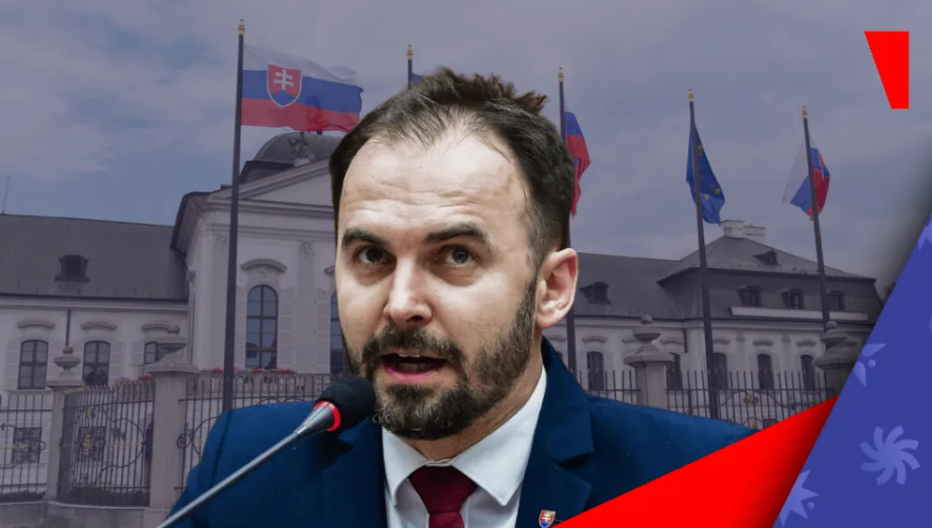
In Slovakia, the debate over the future of gambling taxation has reignited. The Slovakia Movement, known for its populist stance and generally pro-business outlook, has tabled a proposal that is sparking controversy: to increase the fees applied to land-based gaming venues. The move directly challenges the government’s decision to reduce flat-rate taxes on gaming devices – a move the party describes as a “tax bonus” for large gambling operators.
At the heart of the controversy lies the reduction of taxes on slot machines and video terminals. The Slovak government has opted to lower the proposed levy of €9,300 per device, bringing it down to €4,400 for each slot machine and €6,000 for each video terminal located in land-based venues. According to MP Michal Šipoš, this decision represents an unjustified advantage for major operators, depriving public finances of an estimated €52 million.
Šipoš argues that higher taxation would help “level the playing field”, compelling gaming companies to adopt fairer practices and limit the exploitation of Slovak players. In essence, the movement aims to redistribute the fiscal burden to create a fairer and more sustainable system.
However, concerns are growing over the unintended consequences of such a move. Increasing taxes could prompt operators to pass the costs onto consumers, raising the minimum deposits required from players. This could, in turn, encourage riskier gambling behaviours, as individuals may feel pressured to spend more to maintain their usual gaming habits.
The debate, therefore, centres on a delicate balance between the need to regulate a profitable yet sensitive market and the risk that fiscal policies might ultimately harm the very players they seek to protect.
Šipoš has also urged the Slovak government to look to Austria and Poland as examples, pointing to their stricter gambling tax systems. According to him, adopting a similar approach could yield up to €300 million annually in additional state revenue.
Currently, Slovakia applies a flat tax per device, combined with a 27% levy on Gross Gaming Revenue (GGR). In Poland, the framework includes a 12% tax on sports betting stakes and a 50% tax on net income from slot machines and table games. Moreover, Poland enforces a 10% withholding tax on winnings, which the Ministry of Finance has announced will rise to 15% from January 2026.
This forthcoming amendment will also cover winnings from international and EU-based gaming platforms, requiring Polish residents to declare cross-border gambling income. Šipoš views this approach as a fairer and more responsible way to manage public revenue and social policy.
Adding weight to the Slovakia Movement’s argument is the sharp rise in gambling expenditure among Slovak citizens, which has reportedly quadrupled in recent years. This trend worries MP Július Jakab, a colleague of Šipoš, who has criticised the government’s decision not to raise fees to the originally proposed €9,300. Jakab argues that keeping taxes so low “sends the wrong message” at a time when gambling poses increasing risks to vulnerable sections of society.
The ongoing debate underscores a political and moral contradiction: on one hand, the need to attract investment and support a thriving gaming industry; on the other, the duty to protect citizens and ensure fair contributions to the public budget. While the government appears to favour a more moderate fiscal policy, the Slovakia Movement is pushing for a tougher, more redistributive model.
This issue mirrors a broader European dilemma: how to balance economic growth in the gaming sector with social responsibility. Should Slovakia follow the fiscal paths of Austria and Poland, it could mark the beginning of a significant policy shift that reshapes the country’s gambling landscape.
This article was first published in Italian on 23 October 2025.
Be part of the action at SiGMA South Asia, 30 Nov – 02 Dec 2025. Colombo becomes the heart of gaming as 5,000 delegates, 100+ speakers, and 1,000 operators gather under one roof. With high-value traffic, game-changing insights, and unforgettable networking, this is where new markets meet new horizons.
#FiscalPolicy #LandBasedGaming #GGR #TaxReform #EuropeanGaming #PublicPolicy #GamingRegulation #Austria #Poland #iGaming #SocialResponsibility